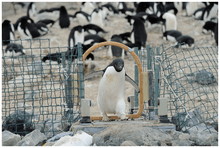Data collection

Data collection is the process of gathering and measuring information on targeted variables in an established system, which then enables one to answer relevant questions and evaluate outcomes. Data collection is a component of research in all fields of study including physical and social sciences, humanities,[2] and business. While methods vary by discipline, the emphasis on ensuring accurate and honest collection remains the same. The goal for all data collection is to capture quality evidence that allows analysis to lead to the formulation of convincing and credible answers to the questions that have been posed.
Importance
Regardless of the field of study or preference for defining data (quantitative or qualitative), accurate data collection is essential to maintaining the integrity of research. Both the selection of appropriate data collection instruments (existing, modified, or newly developed) and clearly delineated instructions for their correct use reduce the likelihood of errors occurring.
A formal data collection process is necessary as it ensures that the data gathered are both defined and accurate and that subsequent decisions based on arguments embodied in the findings are valid.[3] The process provides both a baseline from which to measure and in certain cases an indication of what to improve.
Impact of faulty data
Consequences from improperly collected data include:
- Inability to answer research questions accurately;
- Inability to repeat and validate the study.
Distorted findings result in wasted resources and can mislead other researchers into pursuing fruitless avenues of investigation; it may also compromise decisions, for example for public policy, which may cause disproportionate harm.[4]
See also
References
- ↑ Lescroël, A. L.; Ballard, G.; Grémillet, D.; Authier, M.; Ainley, D. G. (2014). Descamps, Sébastien, ed. "Antarctic Climate Change: Extreme Events Disrupt Plastic Phenotypic Response in Adélie Penguins". PLoS ONE. 9 (1): e85291. doi:10.1371/journal.pone.0085291. PMC 3906005. PMID 24489657.
- ↑ "An open database of productivity in Vietnam's social sciences and humanities for public use". September 25, 2018. doi:10.1038/sdata.2018.188. Retrieved September 26, 2018.
- ↑ Data Collection and Analysis By Dr. Roger Sapsford, Victor Jupp ISBN 0-7619-5046-X
- ↑ Weimer, J. (ed.) (1995). Research Techniques in Human Engineering. Englewood Cliffs, NJ: Prentice Hall ISBN 0-13-097072-7
External links
| Wikimedia Commons has media related to Data collection. |
- Bureau of Statistics, Guyana by Arun Sooknarine